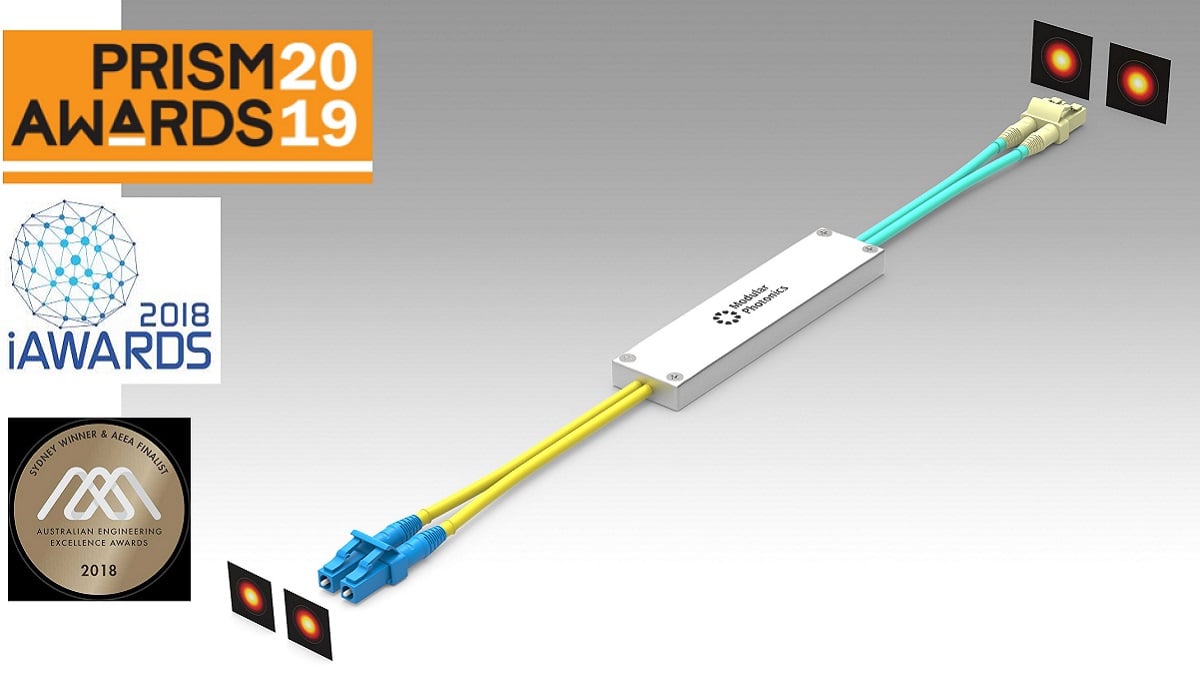
Imagine the benefits of your internet download rate operating at 10 gigabytes per second.
Now add to that NOT having to rip up an entire school building or hospital or apartment block to install it. All you have to do is plug in a small device, about the size of your palm.
Sydney-based start-up Modular Photonics recently won a Prism Award for their Plug n Play OMPlex Passive Silica Chip. This device connects with the existing fiber-optic networks to speed up data flow without any need to install new cables and for significantly less cost.
The OMPlex Passive Silica Chip beat Dover Motion and Nikon to take out the category of Optics and Optomechanics at the 2019 Prism Awards, given out earlier this month. These are the science awards of the future, showcasing fantastic achievements across optics, diagnostics, industrial lasers, and telecommunications.
The reason these awards are so important is that the judges consider more than just scientific achievement; they look at the direct impact science has on the community as well. Something general society often takes for granted.
When awarding the Omplex Passive Silica Chips, the judges noted:
“This product can be used in legacy LAN infrastructures in SMBs and enterprises that have large installed-base of MMF. It is a unique way to upgrade the network without having to recable with every upgrade – saving the end-user loads of money.”
The organizations dependent on improved download speeds are large service-based groups, such as schools, universities, hospitals, libraries, airports. Unfortunately, most of these are also contained in older buildings, where the cost to replace the existing fiber-optic cable is a major deterrent for most administrations. It costs a lot to dig up old concrete buildings and it takes a lot of time.
For example, a class of 30 students in Sydney (Australia) all attempting to downloading the same 1G file with poor download speeds would often wait 40-minutes to complete the task. When testing the Omplex Passive Silica Chips, the download time was as little as 24 seconds.
The device took less than two hours to install and cost $2000.
The greatest benefit of this device is in its application to the existing structure. New and renovated buildings are necessary in any ongoing infrastructure development. However, the reality is organizations and governments simply do not have the money to spend as quickly as the need for data is rising. These speeds would make a huge difference to vendors in shopping centers, librarians and teachers, surgeons and radiologists at hospitals.
For more information about the device, check out the Macquarie University updates on The Lighthouse.



